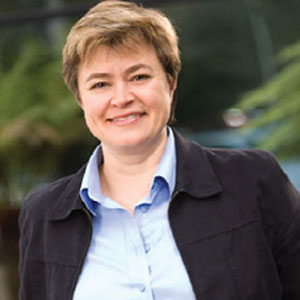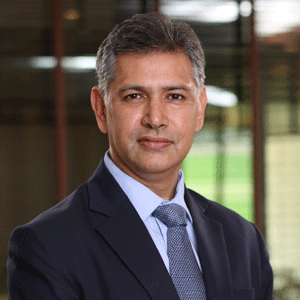THANK YOU FOR SUBSCRIBING

NUCTECH : Bolstering Security in Civil Aviation

 Zhiqiang CHEN, Chairman President & CEO
Zhiqiang CHEN, Chairman President & CEOWith an unrelenting commitment to innovation, NUCTECH launched its Kylin Ti X-ray CT inspection system to help airports upgrade their checkpoint baggage screening to better serve passengers today and tomorrow. Kylin Ti gantry rotates at a constant speed when the baggage is conveyed through the tunnel, generating 3D, slice, and DR images simultaneously. The rich information gathered helps operators find suspicious items within carry-on bags quickly and easily by overcoming the problem of overlapping. Approved by European Civil Aviation Conference with the highest standard of C3, Kylin Ti offers the detection capabilities for passengers to leave electronics and liquids within their bags, reducing the trays needed for screening. With this in place, close contacts among passengers, officials, and even surfaces can be minimized with much fewer opportunities for virus transmission.
“Early adoptions have been very successful. Both passengers and operators have welcomed CT as a game-changer, as baggage screening has been significantly sped up with enhanced detection capabilities,” Prof. Zhiqiang CHEN notes.
Integrated with automatic screening lanes, the potential of CT scanner could be further unleashed. The whole screening process can be largely automated, with no operators needed to move trays from rear to front. The throughput of the screening lane can be more than doubled. Also, with little manual work needed, operators and passengers could be better protected from unnecessary interactions with high-contact surfaces. Further configured with Ultra Violet disinfection module, the automated screening lane can automatically disinfect high-touch trays to minimize the risk of cross-infection at checkpoints.
By incorporating all checkpoint components into one integrated platform, FLEX-ONE network integrated system enables airports to improve screening effectiveness and optimize airport staffing. As a core function, centralized image processing (CIP) could allow for X-ray images to be sent directly to security staff situated away from the checkpoints.
Our unrelenting commitment to innovation is at the heart of our decades of development and remains the secret behind our rapid growth in face of the evolving threat landscape
Moreover, Artificial Intelligence (AI)-based automatic detection algorithms now offer a feasible way to help detect an ever-expanding list of prohibited or dangerous items, as AI/deep learning is a quick learner when adequate data is provided. WEKNOW, a proprietary NUCTECH AI platform, integrates deep learning algorithms and intelligent image analysis into X-ray systems. Reducing subjective human interpretation and leveraging an expandable detection library, WEKNOW increases throughput while minimizing manual inspections and false alarm rates. Consistent decision-making and freedom from fatigue or distractions also help WEKNOW stand out as a superior tool when the workforce is volatile in the time of COVID-19.
Besides, WEKNOW can also be utilized to optimize system operations and minimize system downtime. As system data is collected and analyzed by AI algorithms in a timely manner, system performance can be monitored to better inform proper maintenance and quick fixes.
Even in the riskiest moments amid the pandemic, NUCTECH partnered with its customers, deep-dived into their concerns, and embarked on R&D right at the frontline, side by side with them. With a laser focus on their pain points, NUCTECH’s R&D team worked tirelessly around the clock, quickly expanded its portfolio to better address health and safety concerns, and significantly enriched the toolbox of field officers with solutions like elevated temperature screening camera/module, convertible quarantine booth, disinfection systems in standalone or integrated configurations. Further combined with cutting-edge technologies like AI and Robotics, these solutions bolster customers to quickly keep pace with and even stay ahead of the safety and security challenges amid the pandemic.
With a rich pipeline of innovations, NUCTECH enjoys widespread recognition home and abroad, with market penetration in 450 airports around the world. On account of the high contact environment, NUCTECH integrates UV-based tray disinfection technology with Automated Screening Lane to make each tray sterilized for safe use when it returns from rear to front, greatly improving hygiene standards and containing potential cross-contamination via baggage trays. Several hub airports in Asia have already put NUCTECH’s innovative security and health solution in field installations, including checkpoint CT system, Key-Line automatic security lane, millimeter-wave body scanner, UVC disinfection unit, etc.
NUCTECH was founded in 1997 by a group of physicists as a spinoff company from Tsinghua University. With a workforce including PhD-educated staff and field-leading scientists, engineers, and software developers, the company has transformed theory into a range of advanced products, with an emphasis on research and development. NUCTECH also co-founded National Engineering Laboratory for Dangerous Articles and Explosives Detection Technologies to explore cutting-edge technologies on explosives detection. Owning to relentless R&D efforts, NUCTECH strives to stay at the forefront of the market by hosting an extensive product portfolio ranging from scanners to detect illicit, dangerous, or contraband items, to the newly developed anti-pandemic disinfection or quarantine solutions. The company’s core products have been approved by reputable regulatory agencies, including the Civil Aviation Administration of China (CAAC), the UK Department for Transport (DfT), and the European Civil Aviation Conference (ECAC).
With a prominent position in the security market, NUCTECH achieves a significant market penetration in more than 170 countries, with an extensive service network established to further support our global clients to safeguard travel, trade, and transport across the globe.

I agree We use cookies on this website to enhance your user experience. By clicking any link on this page you are giving your consent for us to set cookies. More info













